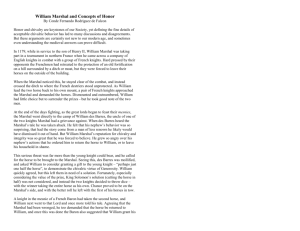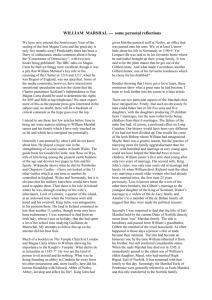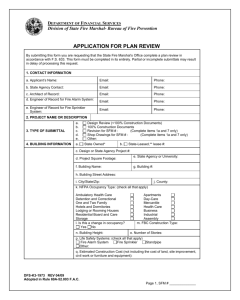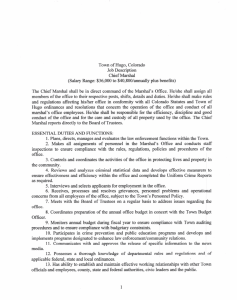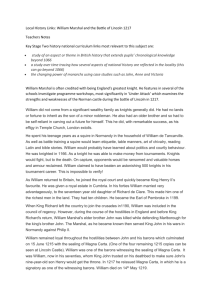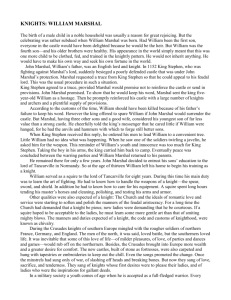William the Marshal may be one of the most famous names of the
advertisement
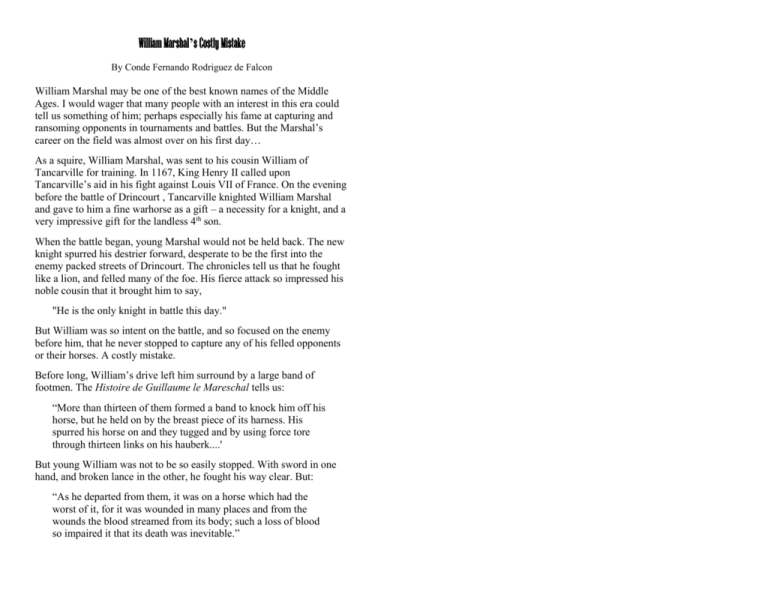
William Marshal’s Costly Mistake By Conde Fernando Rodriguez de Falcon William Marshal may be one of the best known names of the Middle Ages. I would wager that many people with an interest in this era could tell us something of him; perhaps especially his fame at capturing and ransoming opponents in tournaments and battles. But the Marshal’s career on the field was almost over on his first day… As a squire, William Marshal, was sent to his cousin William of Tancarville for training. In 1167, King Henry II called upon Tancarville’s aid in his fight against Louis VII of France. On the evening before the battle of Drincourt , Tancarville knighted William Marshal and gave to him a fine warhorse as a gift – a necessity for a knight, and a very impressive gift for the landless 4th son. When the battle began, young Marshal would not be held back. The new knight spurred his destrier forward, desperate to be the first into the enemy packed streets of Drincourt. The chronicles tell us that he fought like a lion, and felled many of the foe. His fierce attack so impressed his noble cousin that it brought him to say, "He is the only knight in battle this day." But William was so intent on the battle, and so focused on the enemy before him, that he never stopped to capture any of his felled opponents or their horses. A costly mistake. Before long, William’s drive left him surround by a large band of footmen. The Histoire de Guillaume le Mareschal tells us: “More than thirteen of them formed a band to knock him off his horse, but he held on by the breast piece of its harness. His spurred his horse on and they tugged and by using force tore through thirteen links on his hauberk....' But young William was not to be so easily stopped. With sword in one hand, and broken lance in the other, he fought his way clear. But: “As he departed from them, it was on a horse which had the worst of it, for it was wounded in many places and from the wounds the blood streamed from its body; such a loss of blood so impaired it that its death was inevitable.” William’s failure to capture even one mount from the many enemy knights he unhorsed went from a costly mistake to a disaster. That evening at a celebratory feast, an ally asked him for a gift of a crupper or bridle from one of the many horses he had surely captured. But Marshal was forced to admit had he had not captured any horses. His friend then told him: “William, what are you saying? Today you had forty or sixty, before my own eyes!” The room burst into laughter adding insult to William’s injury. Despite his success in the battle he was worse off at its end - having lost the costly destrier. Worse yet, he had neither a spare, nor the funds to buy a new one. The best he could do was sell the new cloak he had been given the day before as a gift for his knighting, and use the funds to buy a rouncy – a low quality mount to use as a pack animal for his armor. Imagine his great frustration when peace broke out shortly thereafter, and a great tournament was announced. He could not take part without a warhorse. Fortunately he was able to borrow a horse from his uncle - or perhaps would have never heard more of William the Marshal. But young William Marshal had learned his lesson, and in that first tournament he made a point of capturing several horses. It was a lesson he would never forget! “Marshal – Flower of Chivalry” Coming to Three Rivers, Memorial Day Weekend, 2009
